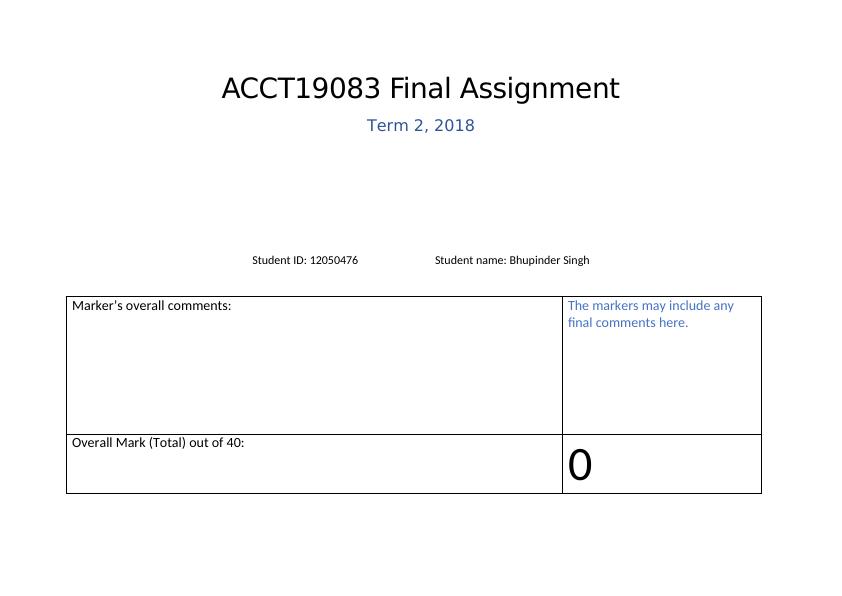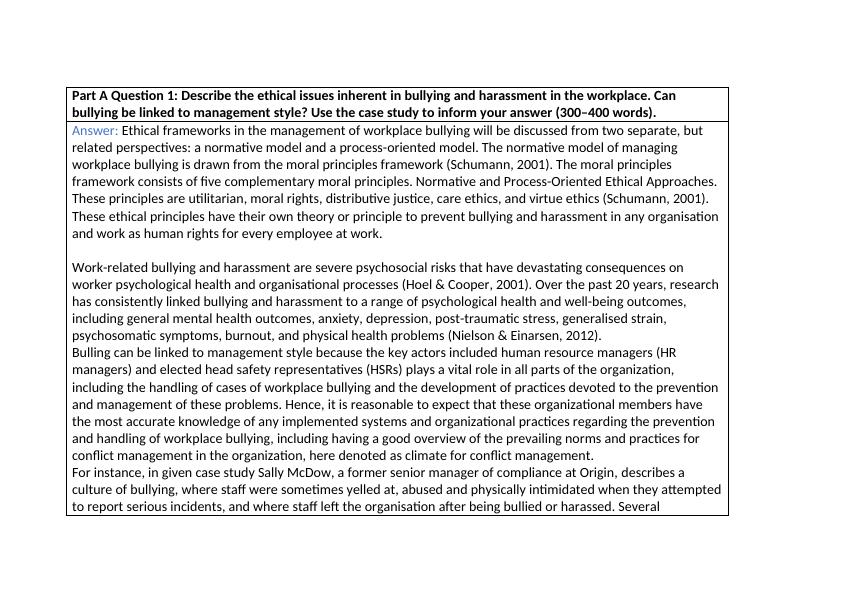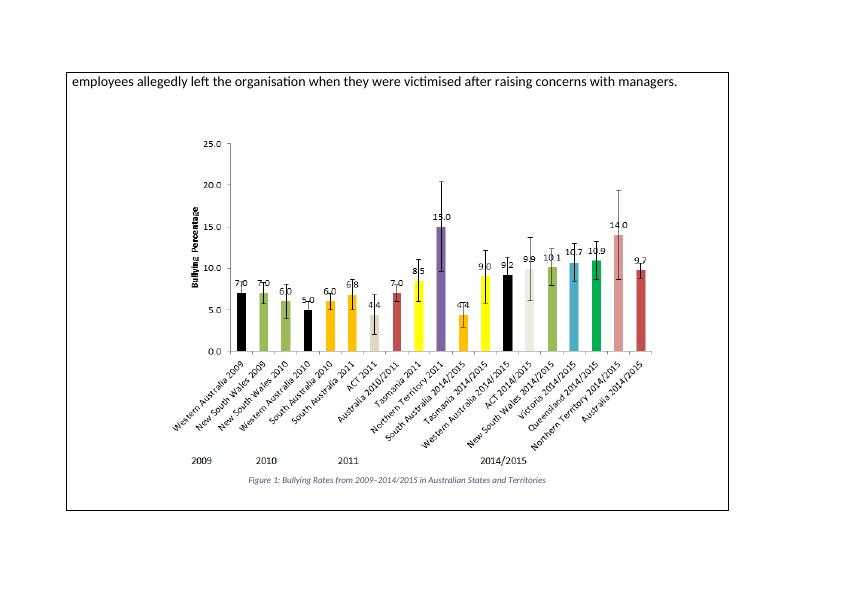Ethical Issues in Workplace Bullying, Discipline and Dismissal, and Whistleblowing
Describe the ethical issues inherent in bullying and harassment in the workplace and discuss if bullying can be linked to management style using a case study.
20 Pages5813 Words491 Views
Added on 2023-06-03
About This Document
This text discusses the ethical issues involved in workplace bullying, discipline and dismissal, and whistleblowing. It explains the rights of employers and employees and how to conduct ethical whistleblowing. A case study is used to support the understanding of these concepts.
Ethical Issues in Workplace Bullying, Discipline and Dismissal, and Whistleblowing
Describe the ethical issues inherent in bullying and harassment in the workplace and discuss if bullying can be linked to management style using a case study.
Added on 2023-06-03
ShareRelated Documents
End of preview
Want to access all the pages? Upload your documents or become a member.
Ethical Issues in Workplace Bullying and Harassment
|21
|5575
|63
Ethical Issues in Workplace Bullying, Discipline and Dismissal, and Whistleblowing
|18
|5717
|96
Ethical Issues in Workplace Bullying and Harassment
|15
|6253
|254
Governance Ethics and Sustainability Code of Conduct 2022
|10
|2123
|17




